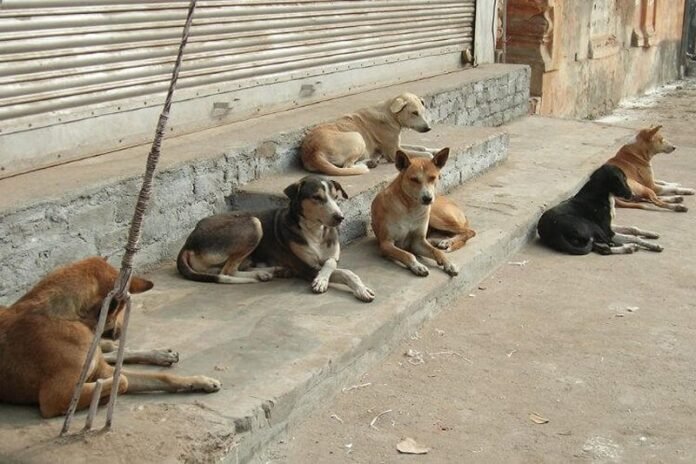Aware of the complexity that the phenomenon of stray dogs and cats represents, Morocco has set out to combat this endemic problem as part of efforts to promote public services related to health prevention and public health.
In order to meet citizens’ ambitions and expectations, the Ministry of the Interior, through the Directorate General for Local Authorities (DGCT), has strengthened its efforts in this area through increased legal, financial and technical support for local communities.
In fact, the ministry annually supports local communities to acquire vehicles equipped with cages and animal trapping equipment, with a budget that has reached almost 70 million dirhams (MDH) over the past five years, said Mohammed Roudani, head of the hygiene and green areas department at the Directorate for Local Public Service in the Ministry of the Interior.
According to a partnership agreement signed in 2019 between the DGCT, the Ministry of Health and Social Protection, the National Food Safety Office (ONSSA) and the National Order of Veterinarians, stray dogs are now collected in specialized clinics, sterilized to limit their reproduction, vaccinated against rabies, treated for parasites and returned to their original environment after identification, with full respect for animal welfare, he explained in a statement to the press.
Located in the prefecture of Salé on an area of one hectare, the veterinary pharmacy in the Rabat-Salé-Kénitra region complies with international animal protection standards defined by the World Health Organization and the World Health Organization, said Youssef Lhor, president of the Moroccan Association for the Protection of Animals and Nature (AMPANA), which is responsible for the management of the pharmacy.
This company, active in the municipalities of Rabat, Salé and Témara, uses the technique called “TNR” (Trap-Neuter-Release), which consists of capturing stray dogs, then treating them (vaccination and sterilization) and releasing them to their original environment, he emphasized to the press during a visit to the regional animal clinic.
This approach makes it possible to control the stray animal population while guaranteeing public safety, he said, noting that the monitoring of animals is ensured by a computer system which guarantees effective management throughout the process.
In order to speed up the implementation of this process at the national level, the Ministry of the Interior has until the end of July 2024 allocated approx. 80 MDH intended for local communities for the construction and equipment, within a partnership framework, of animal dispensers according to recognized criteria in this area, in particular in Oujda, Tangier, Ifrane, Sidi Slimane, Kénitra, Khémisset, Salé, Rabat, Témara, Béni Mellal, Agadir, Marrakech and Casablanca, Mr Roudani said, adding that other similar projects are under study.
In addition, the ministry is working to establish a program aimed at the creation of 130 municipal hygiene offices (BCH) within the framework of groups of local authorities with a total budget of one billion and 40 million dirhams.
When this program is completed in 2025, the national coverage rate of this vital service will reach almost 100% compared to only 18% in 2018, he noted, noting that dealing with the phenomenon of dogs and stray cats, as well as combating rabies, form an essential basis for this programme.
Each BCH created within the framework of these groups will be staffed by two doctors, two nurses, two health technicians as well as a veterinarian responsible for managing the dispensary and overseeing the sterilization of the collected animals.
Faced with the lack of accurate data on the number of stray dogs in Morocco, the ministry recently signed a partnership agreement with the Agronomic and Veterinary Institute (IAV) Hassan II to conduct a census of stray dog populations, plus the provision of oral vaccines, assured Mr. Roudani .
In addition, according to the agreement signed in 2018 with the Ministry of Health and Social Protection, with the aim of bringing medical services closer to citizens, especially in rural areas, the Ministry allocates 40 million dirhams annually for the acquisition of vaccines and anti-rabies serum from the Pasteur Institute for the benefit of the 556 health centres, under the Ministry of Health and Social Protection, he specified.
This amount, he continued, is a supplement to the 40 MDH that are set aside each year by the municipalities for the acquisition of these vital products, which are made available to the anti-rabies centers under these municipalities.
In the same way and in order to improve the conditions of cleanliness and hygiene, the Ministry supports local communities in the establishment, equipment and modernization of red meat slaughterhouses, weekly souks as well as dumping grounds, which are considered to be a source of nutrition for stray animals and a factor that encourages their multiplication , Mr. Roudani noted.
At the legislative level, a draft decree was developed under Law No. 56.12 on the prevention and protection of people against the dangers of dogs, which includes several measures to better manage the phenomenon of stray dogs, while at the same time the principle of animal welfare, ending the manager.
